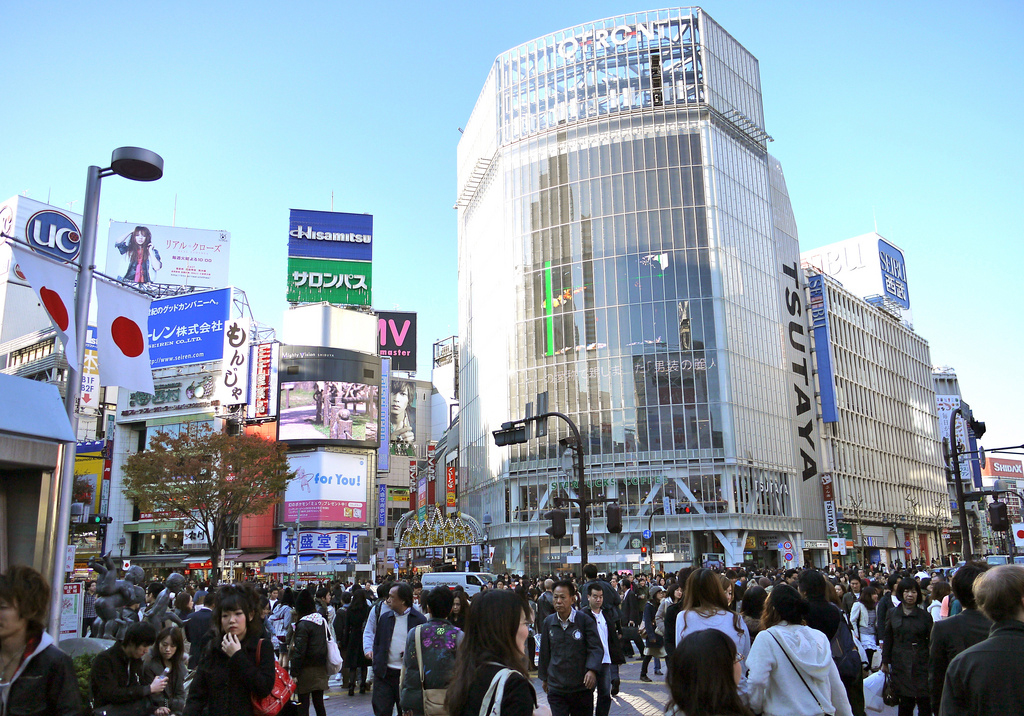
The popular shopping district near Shibuya Station. Photo © Yoshikazu Takada, licensed Creative Commons Attribution.
The appeal of living in a different country—as opposed to being a tourist—is that you can go beyond fascination with cultural differences and perceived mystique. Although some Japanese may befriend you only because of your exotic allure or to practice English, many have traveled or lived abroad and are internationally minded.An American woman who spent a year in Japan says, “I went to Japan because I wanted to live abroad and was interested in the country. It seemed like an easy transition—from the West to the Westernized east—and in some ways it was. I also was attracted to Japan’s safety, as I took my then-two-year-old with me. I taught in two international preschools. Unfortunately, I didn’t have much time to study Japanese— plus I wasn’t truly immersed, being surrounded by people who wanted me to speak English with them!”
If you’ve never known what it’s like to be a minority member, you may go through a transitional period, even culture shock.Is there a down side to life in Japan? Certainly; this is true in every culture. If you’ve never known what it’s like to be a minority member, you may go through a transitional period, even culture shock. You will be labeled gaijin, “outside person,” one of two million in Japan. Like it or not, your face will lead the way; you can never be anonymous. Staring is not so overt in cities, but in outlying regions you may end up playing Pied Piper to a parade of giggling children. On the other hand, if you are Asian you may find yourself disappearing into the crowd for the first time.The language barrier should not be underestimated. Written Japanese utilizes about 2,000 kanji characters plus 46 kana syllables. Although signs in airports and train stations often display romaji, or alphabetic transcription, for the benefit of visitors, most signs, newspapers, magazines, menus, maps, and train schedules will be indecipherable if you can’t read Japanese. Having to ask for help translating rental contracts, utility bills, doctor’s prescriptions, job applications, and the like—indeed, being illiterate—can be demoralizing. And although English is taught in schools, Japanese people are often hesitant to try out their English with you. You may miss not having anyone to chat with.
The housing search will also take a bit of patience. Unfortunately, there are landlords who specify “no foreigners.” Help Wanted ads frequently specify age, gender, nationality, and language ability, and require a photo.
But there are benefits to being from another planet—uh, country. You may be excused for not knowing the proper way to bow or remove your shoes. And spoken Japanese is not so difficult if you have a good ear and good materials. Japan is one of the safest countries in the world, and people are helpful if you get lost. If you encounter roadblocks, learn to laugh at yourself and laugh with others.
Excerpted from the Third Edition of Moon Living Abroad in Japan.